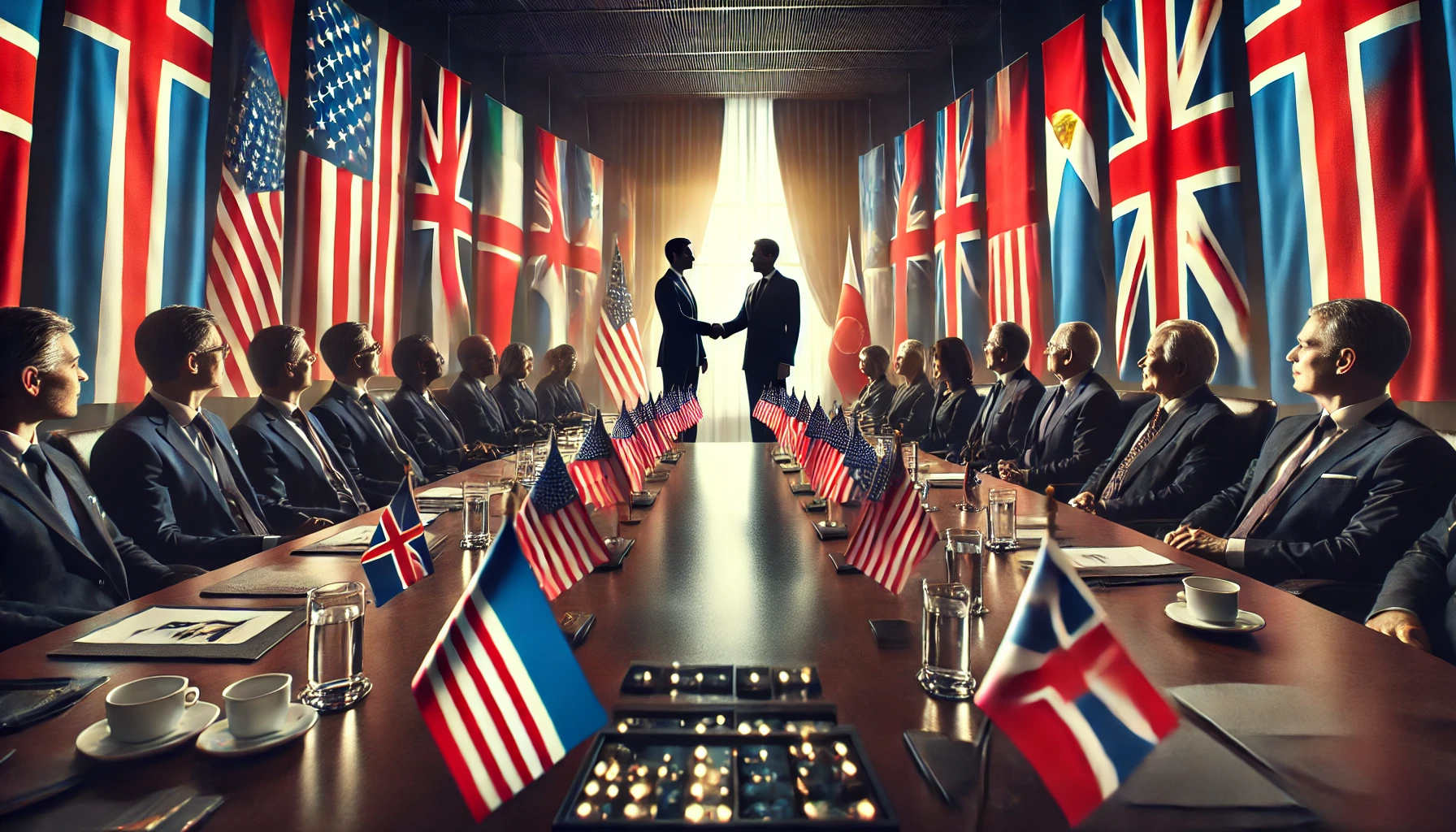UK’s Defense Strategy and US Relations Take Center Stage
UK Prime Minister Keir Starmer’s recent statement to Parliament on defense and security has placed geopolitical strategy at the forefront of investor concerns. His commitment to NATO, continued support for Ukraine, and plans to strengthen ties with the United States highlight key policy shifts that could impact defense spending, trade relationships, and economic stability.
As Starmer prepares for a crucial meeting with President Trump, the investment landscape faces potential volatility. Defense stocks, currency markets, and trade-dependent industries may experience shifts depending on the outcomes of this diplomatic engagement. Meanwhile, Home Secretary Kemi Badenoch’s proposal to reallocate aid budget funds to bolster defense spending signals a potential reshuffling of UK government expenditures that investors should closely monitor.
Why This Matters for Investors
- Defense & Aerospace Stocks in Focus – Increased military spending could benefit UK and US defense contractors, including BAE Systems (LSE: BA.) and Rolls-Royce (LSE: RR.), which may see contract expansions.
- Sterling and Trade Implications – UK-US relations play a pivotal role in currency stability and trade policies, influencing GBP valuation and sector-specific equities.
- Market Reaction to Political Uncertainty – Criticism surrounding Starmer’s statement, coupled with redactions in key defense documents, could introduce policy uncertainty, affecting investor confidence in UK markets.
Defense Spending and Its Investment Impact
Starmer’s statement reaffirms the UK’s commitment to NATO, aligning with broader European defense priorities amid ongoing geopolitical risks. Increased military funding could mean additional government contracts for defense manufacturers, cybersecurity firms, and logistics providers. Badenoch’s proposal to shift aid budget funds toward military expansion further underscores the UK’s strategic pivot.
For investors, this presents opportunities in the defense sector, particularly among firms positioned to benefit from rising government spending. However, the redistribution of funds may create budgetary constraints in other sectors, potentially affecting economic growth and social infrastructure investments.
UK-US Relations and the Economic Landscape
The upcoming meeting between Starmer and President Trump carries significant weight for UK-US trade dynamics. Trump’s protectionist policies and potential tariff adjustments could reshape UK exporters’ access to the US market. If trade negotiations favor the UK, British firms with US exposure—such as those in manufacturing, finance, and technology—could see upside potential. Conversely, if tensions escalate, market volatility may increase.
Future Trends to Watch
- Defense Sector Growth: Watch for announcements on new contracts or policy commitments that could drive stock performance in the aerospace and defense industries.
- US-UK Trade Policies: Any agreements or conflicts resulting from the Starmer-Trump meeting could impact UK-listed companies with significant US market exposure.
- Public Sentiment and Political Stability: Investor confidence in UK markets may fluctuate based on government stability and policy clarity, particularly if Starmer faces ongoing opposition scrutiny.
Key Investment Insight
Investors should keep a close eye on defense stocks, currency fluctuations, and trade-dependent sectors as the UK recalibrates its foreign policy strategy. Companies with direct ties to government defense contracts stand to gain, while trade-sensitive industries may experience volatility depending on Starmer’s negotiations with the US.
As global geopolitical tensions persist, government policies on defense and trade remain critical factors influencing investment decisions. The Starmer-Trump meeting could set the stage for economic cooperation or policy divergence, shaping the trajectory of UK markets in 2025.
For more timely investment insights, stay updated with MoneyNews.Today.





